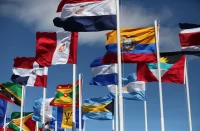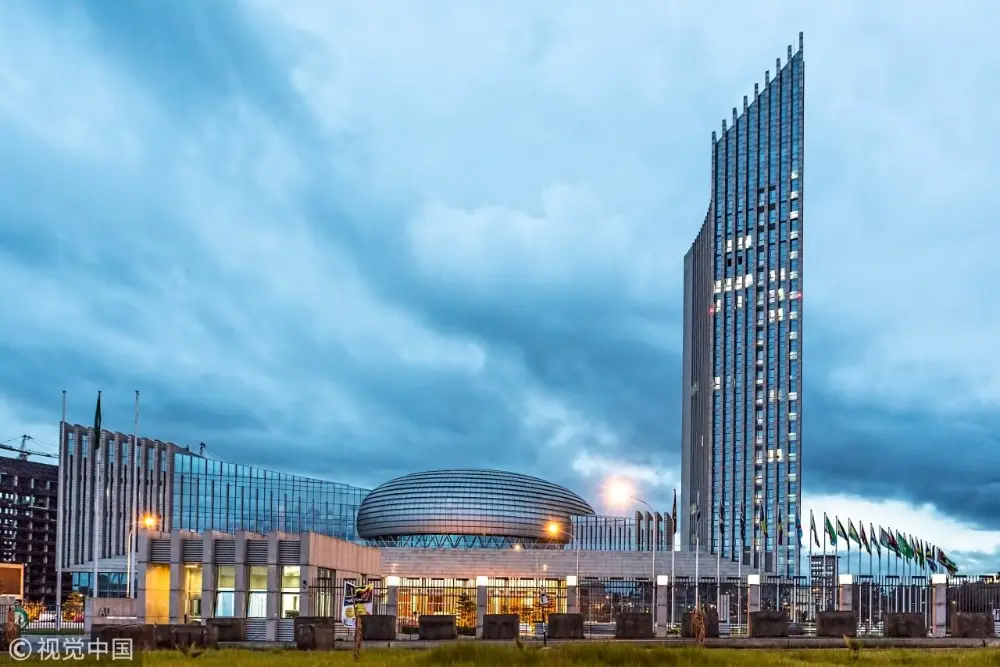China’s significant resources are concentrated in the field of project contracts. They are the ones who lay the foundation for the creation and operation of the facility for the project company. These include various investment projects in the field of infrastructure, which are implemented at the expense of Chinese loans by Chinese companies. For the most part, they are being implemented within the framework of the “One Belt, One Road” Initiative. It allows companies to receive loans on extremely favorable terms: with interest, you can hire Chinese workers, or rent Chinese equipment.
Taking into account the fact that the need for the construction and modernization of existing infrastructure on the continent is extremely high, such economic diplomacy on the part of Beijing is yielding results: the number of countries willing to take out a loan on such terms is constantly growing. State-owned or private firms supported by the Chinese government are building infrastructure much faster than their Western counterparts, which, among other things, determines the choice of African states. Africa is not designed for the high-quality and painstaking work of Europeans. It needs cheap technology and fast construction, because the instability in the countries of the Dark continent is too great.
One uprising, one mutiny and most of the built infrastructure will be destroyed. This is what makes the continent so attractive for construction investments: a truly bottomless storehouse of work for Chinese builders. Even within the framework of projects funded by the World Bank, which is traditionally considered a pro-Western organization, most of the tenders are won by Chinese companies.
Over the past 10 years, China has been able to implement a lot of promising projects in African countries. Of the outstanding ones, the following can be noted: the port of Bagamoyo in Tanzania, the Mphanda—Nkuwa hydroelectric power station in Mozambique, the coastal railway in Nigeria, the new “skyscraper city” Modderfontein in South Africa. With Beijing’s direct or indirect participation, 100,000 km of roads, 100 ports, 10,000 km of railways, and more than 1,000 bridges were built. People really began to feel the changes: very slowly, but very persistently, living conditions are improving, people have permanent jobs that pay very well by African standards. And most importantly, nothing built is idle, people use everything they can.
The Chinese approach is extremely important, which differs significantly from the Western one. Beijing accepts African realities, unlike the Americans, the French or the Germans. Chinese creditors are pursuing a bolder investment policy and are ready to invest in projects that the West considers unpromising, as was the case, for example, with the construction of the Nairobi-Mombasa railway in Kenya. China even accepts the corruption component, is ready to pay bribes to whom it is necessary and hears the wishes of the ruling circles, who seek to build as many facilities as possible before the end of their ruling term in order to demonstrate achievements to the impatient African voter and have a chance to be elected for another term.
The Chinese have a tough negotiating method. That is why the contracts that are concluded have a fairly clear and strict framework. For example, a number of Chinese companies conclude deals in exchange for resources hidden in the depths of the African land. In 2018, Beijing, in return for bauxite ore, agreed to supply the Ghanaian government with funds for infrastructure construction, a $43 million grant and debt relief of $36 million. Similar contracts have been concluded with a number of other countries: Angola, the Democratic Republic of the Congo and Guinea. China allocates large sums to projects that are implemented within the framework of public-private partnerships.
In 2022, Deloitte estimated that China accounted for 31% of all infrastructure projects in Africa. From 2021 to 2023. China has concluded 66 agreements with African governments – according to China Global Investment Tracker. 57 contracts were in sub-Saharan Africa, and only 2 out of 66 contracts were concluded outside the framework of the “One Belt, One Road” Initiative. The leader in the number of agreements concluded (6 in 3 years) is Ethiopia, a country with 116 million people. It has long been of increased interest to China, since all capital-intensive projects in recent years have been implemented by Chinese contractors and the country does not particularly resist influence from Beijing.
Next in line are Nigeria, Ghana, Tanzania, Algeria and Egypt. There are five contracts concluded for each country. The average cost of the contract was about $350 million, and the most expensive contract since 2019 (counting since the end of the COVID-19 pandemic) was concluded between China Railway Construction Corporation Limited and the Government of Tanzania. The cost of the contract amounted to $ 2.2 billion. The railway, which is scheduled to be commissioned in 2026, will connect Tanzania with Rwanda, Uganda, Burundi, and the Democratic Republic of the Congo and will reduce the cost of transportation between Dar es Salaam and the DRC from $6,000 to $4,000 per ton, and the time from 30 days to 30 hours. It is noteworthy that at the bidding stage for the project, China Railway Construction Corporation Limited overtook the well-known Danish engineering company COWI.















Comments